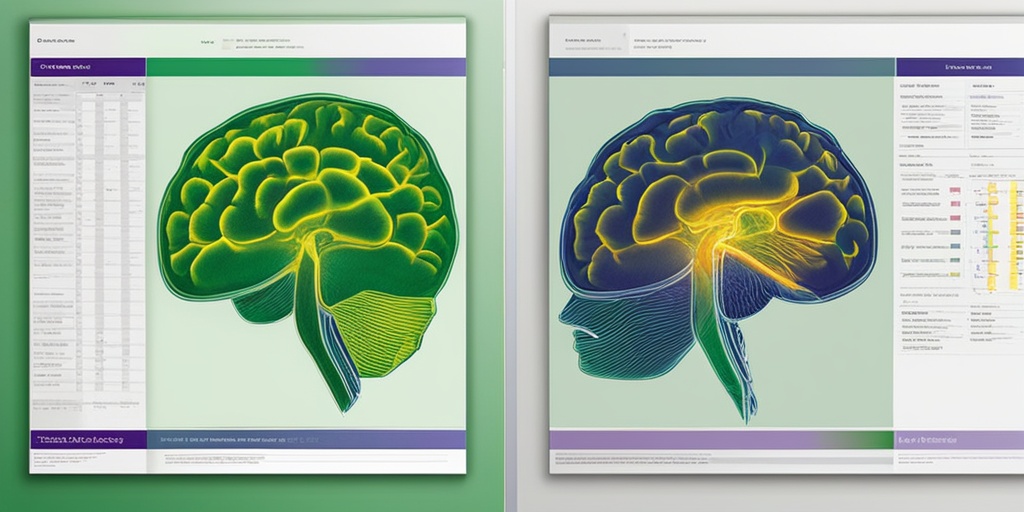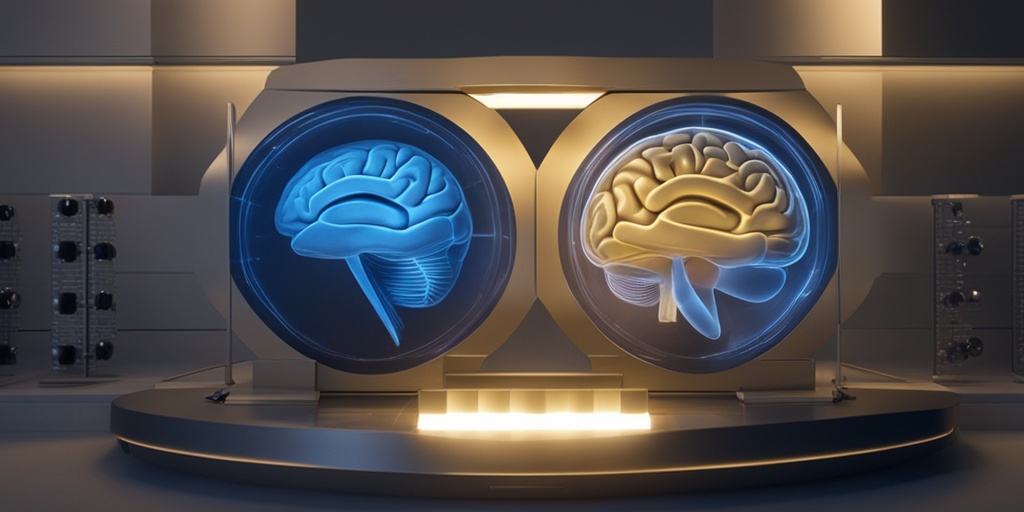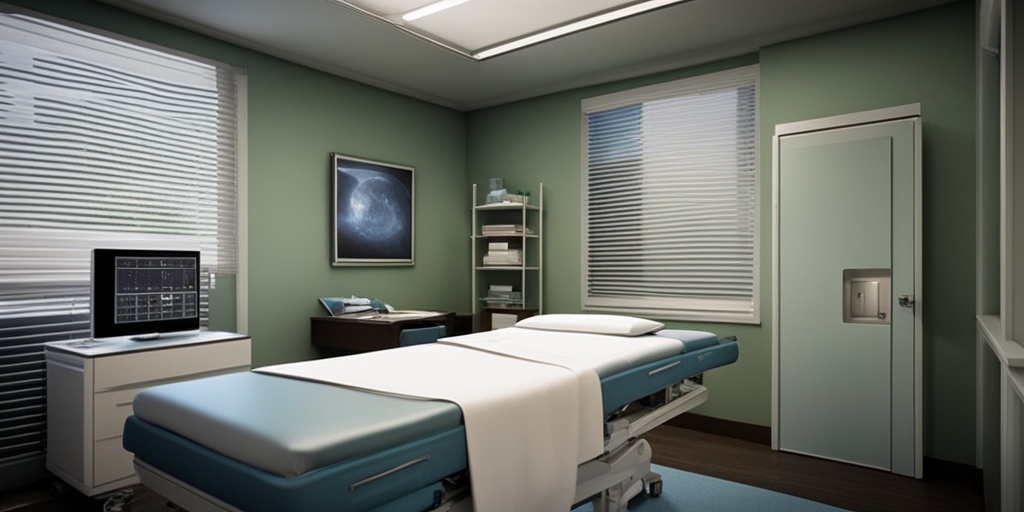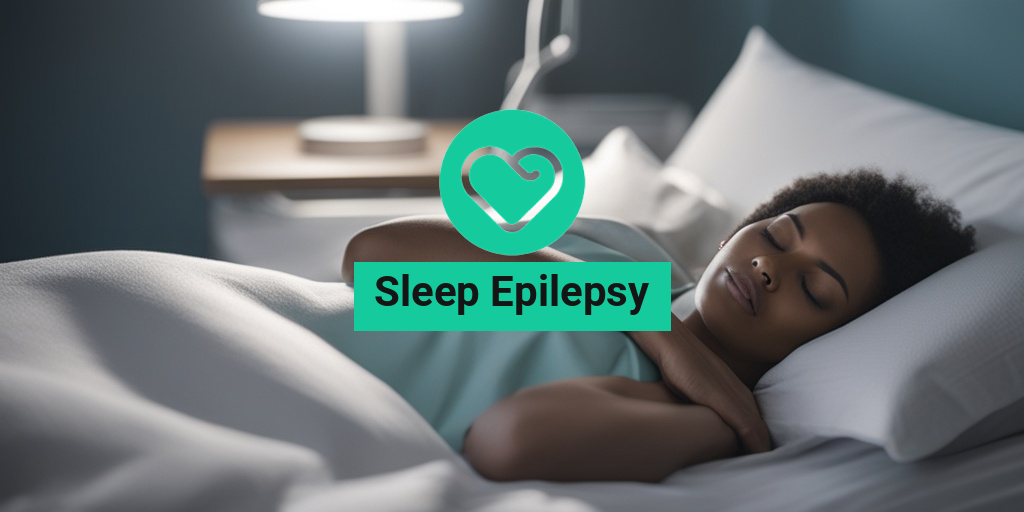What is Sleep Epilepsy?
Sleep epilepsy, also known as nocturnal epilepsy, is a type of epilepsy that occurs during sleep. It’s a neurological disorder that affects the brain’s electrical activity, causing seizures to occur while a person is sleeping. These seizures can occur during any stage of sleep, including non-rapid eye movement (NREM) and rapid eye movement (REM) sleep.
Sleep epilepsy can be a challenging condition to diagnose, as the seizures often occur at night, and the person may not be aware of them. In some cases, the only indication of a seizure may be a report from a family member or caregiver who witnessed the episode. However, sleep epilepsy can have a significant impact on a person’s quality of life, causing daytime fatigue, mood disturbances, and cognitive impairment.
Causes of Sleep Epilepsy
The exact causes of sleep epilepsy are not fully understood, but research suggests that it may be related to various factors, including:
- Genetics: Sleep epilepsy can run in families, suggesting a possible genetic link.
- Brain structure: Abnormalities in brain structure, such as cortical malformations, may contribute to the development of sleep epilepsy.
- Infections: Certain infections, such as meningitis or encephalitis, can increase the risk of developing sleep epilepsy.
- Head trauma: Trauma to the head can cause damage to the brain, leading to sleep epilepsy.
While the causes of sleep epilepsy are not yet fully understood, research is ongoing to uncover the underlying mechanisms and identify potential risk factors.
Types of Sleep Epilepsy
Sleep epilepsy can manifest in different ways, and there are several types of seizures that can occur during sleep. Here are some of the most common types of sleep epilepsy:
Nocturnal Frontal Lobe Epilepsy (NFLE)
NFLE is a type of sleep epilepsy that affects the frontal lobe of the brain. It’s characterized by seizures that occur during NREM sleep, often with minimal symptoms. NFLE is often misdiagnosed as sleep disorders, such as sleepwalking or sleep terrors.
Benign Rolandic Epilepsy (BRE)
BRE is a type of sleep epilepsy that affects children, typically between the ages of 3 and 13. It’s characterized by seizures that occur during sleep, often with symptoms such as facial twitching, drooling, and tongue biting.
Autosomal Dominant Nocturnal Frontal Lobe Epilepsy (ADNFLE)
ADNFLE is a rare type of sleep epilepsy that is inherited in an autosomal dominant pattern. It’s characterized by seizures that occur during sleep, often with symptoms such as confusion, agitation, and hallucinations.
These are just a few examples of the different types of sleep epilepsy. Each type has its unique characteristics, and a proper diagnosis is essential for effective treatment and management.
If you or a loved one is experiencing symptoms of sleep epilepsy, it’s essential to consult with a healthcare professional for a proper diagnosis and treatment plan. Additionally, resources like Yesil Health AI (yesilhealth.com) can provide valuable information and evidence-based answers to help you navigate the complexities of sleep epilepsy. 💤

Sleep Epilepsy Symptoms
Sleep epilepsy, also known as nocturnal epilepsy, is a type of epilepsy that occurs during sleep. It can be challenging to diagnose, as the seizures often occur at night, and the person may not be aware of them. However, there are some common symptoms that can indicate sleep epilepsy.
Seizures During Sleep
The most obvious symptom of sleep epilepsy is seizures that occur during sleep. These seizures can be tonic-clonic, which means the person’s body stiffens and then convulses, or partial, which affects only one part of the body. In some cases, the seizures can be absence seizures, which cause a brief loss of consciousness.
Waking Up Confused or Disoriented
People with sleep epilepsy may wake up feeling confused, disoriented, or groggy. This can be due to the seizure itself or the medication used to treat it.
Fatigue and Sleepiness
Sleep epilepsy can disrupt normal sleep patterns, leading to excessive daytime fatigue and sleepiness. This can be due to the seizures themselves or the medication used to treat them.
Morning Headaches
Some people with sleep epilepsy may experience morning headaches, which can be a sign of a seizure that occurred during the night.
Bedwetting
In some cases, sleep epilepsy can cause bedwetting, especially in children.
Other Symptoms
Other symptoms of sleep epilepsy can include:
- Mood changes, such as irritability or anxiety
- Memory problems, such as difficulty concentrating or remembering events
- Unusual behaviors, such as sleepwalking or sleep-talking
If you or a loved one is experiencing any of these symptoms, it’s essential to consult with a healthcare professional for proper diagnosis and treatment. 💊
Causes of Sleep Epilepsy
Sleep epilepsy can be caused by a variety of factors, including:
Genetics
Sleep epilepsy can be inherited, and people with a family history of epilepsy are more likely to develop the condition.
Brain Abnormalities
Abnormalities in the brain, such as brain tumors or stroke, can increase the risk of sleep epilepsy.
Infections
Certain infections, such as meningitis or encephalitis, can cause sleep epilepsy.
Head Trauma
Head trauma, such as a concussion, can increase the risk of sleep epilepsy.
Other Medical Conditions
Certain medical conditions, such as sleep apnea or restless leg syndrome, can increase the risk of sleep epilepsy.
It’s essential to work with a healthcare professional to determine the underlying cause of sleep epilepsy and develop an effective treatment plan. 💊

Risk Factors for Sleep Epilepsy
Sleep epilepsy, also known as nocturnal epilepsy, is a type of epilepsy that occurs during sleep. While anyone can develop sleep epilepsy, certain individuals are more prone to it due to various risk factors. In this section, we’ll explore the common risk factors associated with sleep epilepsy.
Genetic Predisposition
Having a family history of epilepsy or sleep disorders can increase your risk of developing sleep epilepsy. Research suggests that certain genetic mutations can affect the brain’s electrical activity, leading to an increased risk of seizures during sleep.
Age
Sleep epilepsy can affect people of all ages, but it’s more common in children and young adults. Children under the age of 10 are more likely to experience sleep epilepsy, while young adults between 15 and 24 years old are also at a higher risk.
Brain Injuries or Infections
Head injuries, infections, or inflammation in the brain can increase the risk of developing sleep epilepsy. This is because these conditions can cause scarring or damage to the brain tissue, leading to abnormal electrical activity.
Sleep Disorders
People with sleep disorders such as sleep apnea, insomnia, or restless leg syndrome are more likely to experience sleep epilepsy. This is because these disorders can disrupt normal sleep patterns, making it easier for seizures to occur.
Other Medical Conditions
Certain medical conditions, such as autism, cerebral palsy, or intellectual disabilities, can increase the risk of sleep epilepsy. Additionally, people with a history of febrile seizures or other seizure disorders are also more likely to develop sleep epilepsy.
Diagnosing Sleep Epilepsy
Diagnosing sleep epilepsy can be challenging, as seizures often occur during sleep, making it difficult for individuals to recall or describe their symptoms. However, a combination of medical history, physical examination, and diagnostic tests can help healthcare professionals diagnose sleep epilepsy.
Medical History
A thorough medical history is essential in diagnosing sleep epilepsy. Healthcare professionals will ask about the individual’s symptoms, including the frequency and duration of seizures, as well as any triggers or warning signs.
Physical Examination
A physical examination can help identify any underlying medical conditions that may be contributing to sleep epilepsy. This may include a neurological examination to assess cognitive function, motor skills, and reflexes.
Diagnostic Tests
Several diagnostic tests can help confirm a diagnosis of sleep epilepsy. These may include:
- Electroencephalogram (EEG): An EEG measures the electrical activity in the brain and can help identify abnormal patterns that may indicate sleep epilepsy.
- Polysomnography (PSG): A PSG is a sleep study that records various physiological activities, such as brain waves, muscle activity, and heart rate, during sleep.
- Video-EEG monitoring: This test combines EEG recordings with video footage to capture seizures and other abnormal brain activity during sleep.
- Imaging tests: Imaging tests, such as MRI or CT scans, can help identify any underlying structural abnormalities in the brain that may be contributing to sleep epilepsy.
By combining these diagnostic tests with a thorough medical history and physical examination, healthcare professionals can accurately diagnose sleep epilepsy and develop an effective treatment plan. 💊

Treatment Options for Sleep Epilepsy
Sleep epilepsy, also known as nocturnal epilepsy, is a type of epilepsy that occurs during sleep. While it can be challenging to manage, there are various treatment options available to help alleviate symptoms and improve the quality of life for individuals with sleep epilepsy.
Medications
The primary goal of medication therapy for sleep epilepsy is to reduce the frequency and severity of seizures. Anticonvulsant medications, such as carbamazepine, lamotrigine, and valproate, are commonly prescribed to treat sleep epilepsy. These medications work by reducing the abnormal electrical activity in the brain that causes seizures.
Surgery
In some cases, surgery may be necessary to treat sleep epilepsy. This is typically considered when medications are ineffective or when the seizures are caused by a specific abnormality in the brain that can be surgically removed. Epilepsy surgery can be an effective option for individuals with sleep epilepsy, especially those with focal seizures that originate from a specific area of the brain.
Dietary Therapies
Dietary therapies, such as the keto diet, have been shown to be effective in reducing seizures in some individuals with sleep epilepsy. The keto diet is a high-fat, low-carbohydrate diet that can help reduce the frequency and severity of seizures. Other dietary therapies, such as the modified Atkins diet and the low-glycemic index diet, may also be beneficial.
Device Therapies
Device therapies, such as vagus nerve stimulation (VNS), can be used to treat sleep epilepsy. VNS involves implanting a device that stimulates the vagus nerve, which can help reduce the frequency and severity of seizures. Other device therapies, such as deep brain stimulation and responsive neurostimulation, may also be effective.
Managing Sleep Epilepsy with Lifestyle Changes
In addition to medical treatment, making lifestyle changes can help manage sleep epilepsy and improve overall health. Here are some tips to get you started:
Get Enough Sleep
Getting enough sleep is essential for individuals with sleep epilepsy. Aim for 7-8 hours of sleep each night and establish a consistent sleep schedule. Avoid sleep deprivation, as it can trigger seizures.
Establish a Bedtime Routine
Establishing a bedtime routine can help improve sleep quality and reduce the risk of seizures. This can include activities such as reading, meditation, or deep breathing exercises. Avoid stimulating activities before bedtime, such as watching TV or using electronic devices.
Exercise Regularly
Regular exercise can help improve overall health and reduce the frequency and severity of seizures. However, it’s essential to avoid overexertion, as this can trigger seizures. Consult with your doctor to develop an exercise plan that’s right for you.
Manage Stress
Stress can trigger seizures in individuals with sleep epilepsy. Practicing stress-reducing techniques, such as yoga, meditation, or deep breathing exercises, can help manage stress and improve overall health. Take breaks throughout the day to relax and reduce stress.
By combining medical treatment with lifestyle changes, individuals with sleep epilepsy can better manage their condition and improve their overall quality of life. Remember to consult with your doctor before making any significant changes to your treatment plan. 💊

Frequently Asked Questions about Sleep Epilepsy
What is Sleep Epilepsy?
Sleep epilepsy, also known as nocturnal epilepsy, is a type of epilepsy that occurs during sleep. It is characterized by seizures that occur while a person is sleeping or in a state of drowsiness.
What are the Symptoms of Sleep Epilepsy?
The symptoms of sleep epilepsy can vary from person to person, but common symptoms include:
- Twitching or jerking movements during sleep
- Unusual sounds or vocalizations during sleep
- Sudden awakenings with confusion or disorientation
- Difficulty falling asleep or staying asleep
- Fatigue or sleepiness during the day
What Causes Sleep Epilepsy?
The exact cause of sleep epilepsy is not always known, but it can be related to:
- Genetic factors
- Brain injury or infection
- Developmental disorders
- Certain medications
How is Sleep Epilepsy Diagnosed?
Sleep epilepsy can be diagnosed through a combination of:
- Medical history and physical examination
- Electroencephalogram (EEG) to record brain activity during sleep
- Polysomnography (PSG) to monitor sleep patterns and brain activity
- Imaging tests such as MRI or CT scans to rule out other conditions
How is Sleep Epilepsy Treated?
Treatment for sleep epilepsy typically involves:
- Medications to control seizures
- Lifestyle changes such as maintaining a consistent sleep schedule and avoiding triggers
- Surgery in some cases to remove the part of the brain causing the seizures
Can Sleep Epilepsy be Cured?
While sleep epilepsy can be managed with treatment, it is not always possible to cure. However, with proper treatment and lifestyle changes, many people with sleep epilepsy can lead normal lives.
How Does Sleep Epilepsy Affect Daily Life?
Sleep epilepsy can affect daily life in various ways, including:
- Difficulty with sleep and fatigue
- Impact on work or school performance
- Emotional and psychological distress
- Impact on relationships and social life
What are the Complications of Sleep Epilepsy?
Complications of sleep epilepsy can include:
- Injury during seizures
- Status epilepticus, a prolonged seizure that can be life-threatening
- Sudden unexpected death in epilepsy (SUDEP)
- Emotional and psychological distress
Can Sleep Epilepsy be Prevented?
While sleep epilepsy cannot be completely prevented, certain measures can reduce the risk of seizures, such as:
- Maintaining a consistent sleep schedule
- Avoiding triggers such as stress and lack of sleep
- Taking medications as prescribed
- Getting regular exercise and a healthy diet
What is the Outlook for People with Sleep Epilepsy?
The outlook for people with sleep epilepsy varies depending on the severity of the condition and the effectiveness of treatment. With proper treatment and lifestyle changes, many people with sleep epilepsy can lead normal lives.
Where Can I Get More Information about Sleep Epilepsy?
More information about sleep epilepsy can be found through:
- The Epilepsy Foundation
- The National Institute of Neurological Disorders and Stroke (NINDS)
- Consulting with a healthcare professional
👍 We hope this FAQ has been helpful in understanding sleep epilepsy! If you have any further questions, don’t hesitate to reach out to a healthcare professional.




